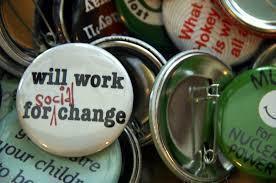Listening to Understand
Blog post by Andrea Rodericks and is shared generously by The Ideal Practitioner.
What do you think are the most important practices and competencies of a social change/development practitioner?
I have had a few occasions over the past year to reflect on some version of this question with different groups of people (NGO project managers, interns, research partners, INGO participants of a working group focused on organisational change). Consistently we ended up on some combination of the following (which is a mix of competencies and practices):What do you think are the most important practices and competencies of a social change/development practitioner?
- Curiosity about different ways of doing things
- Listening ability (to be able to listen to people who are different to yourself, in communities, with other development professionals from different disciplines, at all levels from the global north and south, not just to get information, but to understand)
- The ability to understand and analyse power, including one’s own positionality – paying attention to power dynamics particularly in situations where you are perceived as having “power over” others
- Application of systems thinking in their work, especially the skill of systems mapping
- Transnational awareness
- (we weren’t sure what to call this… it came from a discussion we had focused on participation of global south constituents in development policy. What we discussed was that the nature of current development challenges would be well served by development practitioners everywhere having a local-global sense and understanding of issues. We noticed that this was increasingly developing among practitioners everywhere, but not always valued everywhere… e.g. participants said that sometimes international staff in INGOs automatically assume they have a broader view and more comprehensive understanding than their local counterparts, although this is not necessarily the case any more)
- Exposure to socio-political or political economy analysis, and being able to recognize when it can add value
- Particular technical expertise (including knowledge from diverse contexts and learning from failures in different contexts – we noted that it was hard to find the latter)
What is your image of an “ideal” social change/development practitioner?
I don’t think there is one “ideal” image… but I really appreciate practitioners who are neither timid nor over-confident, and ask questions that make me think; Do not try to fit everything they observe or experience within their understanding of the world too quickly; Are able to step back and see a bigger picture and observe different world views; and are not too worried or insecure about their career, and willing to take some risks.
ANDREA RODERICKS IS A FREELANCE CONSULTANT WHO FOCUSES ON PROGRAMME AND ORGANISATIONAL DESIGN AND EFFECTIVENESS, AND CURATING PARTNERSHIPS TO COLLECTIVELY ADDRESS COMPLEX DEVELOPMENT CHALLENGES. SHE HAS WORKED ON DEVELOPMENT AND HUMANITARIAN ISSUES FOR THE PAST 24 YEARS, MOST OF THESE WITH THE NGO CARE INTERNATIONAL, IN MANAGEMENT AS WELL AS TECHNICAL ADVISORY ROLES, LARGELY IN SOUTH ASIA AND SOUTHERN AFRICA. ANDREA IS A MEMBER OF THE SYNERGOS SENIOR FELLOWS’ GLOBAL NETWORK THAT CONNECTS CIVIL SOCIETY LEADERS COMMITTED TO COLLABORATIVELY ADDRESS UNDERLYING CAUSES OF POVERTY AND INEQUITY. SHE SPENDS MOST OF HER TIME IN HER HOME COUNTRY, INDIA.
- Making Public Deliberations Inclusive with Mixed Methods AR - October 26, 2020
- Participatory action research with Aboriginal Elders: Ngulluk Koolunga Ngulluk Koort project - October 12, 2020
- Bringing the relational self to ART: Interview with Dr. Yvonne Skipper - October 1, 2020
